A look back at WABC radio’s incredible moments as it turns 100
In 1964, a crazed young Beatles fan ripped a very precious medallion off the neck of drummer Ringo Starr during the band’s first trip to New York City.
“When The Beatles came to [their] hotel, the crowds broke through the police lines… it looked like a tsunami, like the tide broke. I saw policemen on their horses go down,” famed radio disk jockey Bruce “Cousin Brucie” Morrow told The Post.
“They wanted souvenirs, so they would grab and rip. They took shirts, they took clothing, they took pieces of hair, they got hair from The Beatles.”
Afterwards and in a state of panic, Starr and Paul McCartney rushed over to Cousin Brucie inside his WABC studio — the DJ had helped fuel the band’s incredible popularity in the US — and enlisted his help in getting back the St. Christopher medal.
Moments later, Cousin Brucie was on the air requesting whoever had “found” it come forward with the medallion — and, unbelievably, it was returned to the drummer as part of a later press event.
It was just one of the defining moments in the 100-year history of WABC — the iconic radio station first known as WJZ before turning over to its current callsign in 1953, which is celebrating its centennial with a party on Sept. 7, as well as producing a series of hourlong radio documentaries on the history of the station.
It was there that Howard Cosell launched his legendary broadcasting career with a Little League baseball show; radio host Curtis Sliwa angered the mob and was shot up in a cab as retribution; and conservative commentators launched their careers with pull-no-punches talk.

But, just over 15 years ago, things were looking down when Disney sold the station to Citadel in 2006, WABC creative director Chris Libertini explained.
The following year, the station changed hands once more, this time to Cumulus, which gutted WABC and fired the entire news department, according Libertini. By the late 2010s, WABC was at risk of becoming a repeater for either a Russian or Korean radio station before local businessman John Catsimatidis and his wife Margo acquired it for $12.5M in 2020.
“We believe in live radio,” Catsimatidis told The Post, noting that “music radio, talk radio and news” are all part of today’s mix.
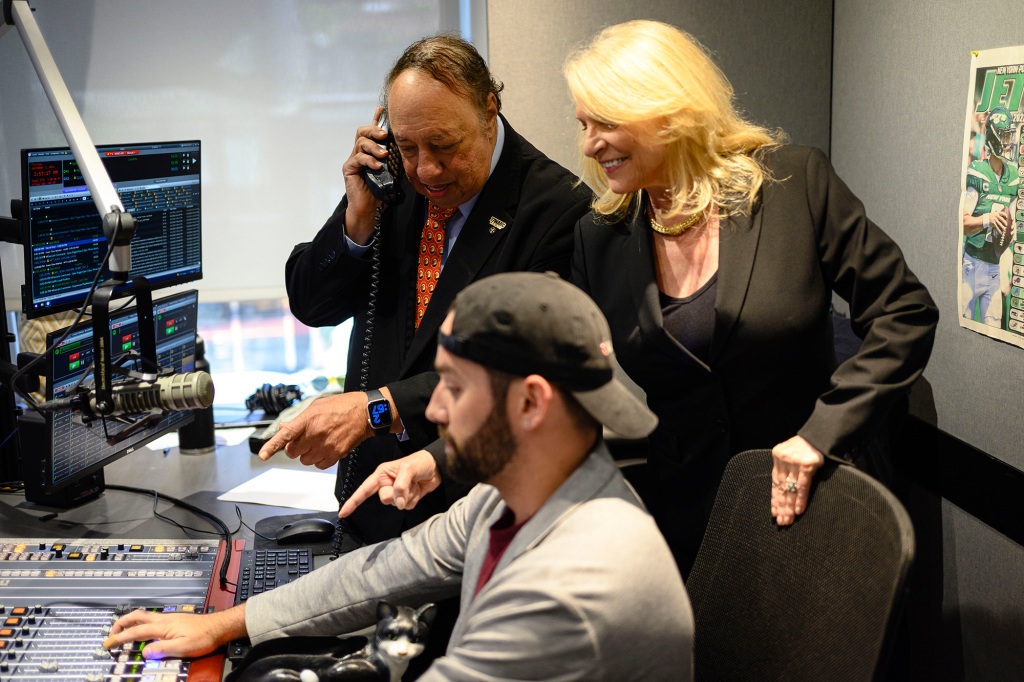
To broaden the station’s focus on national politics, he rehired Cousin Brucie — “He was 86 years old, but I gave him a 30-year contract,” Catsimatidis joked — and brought on additional weekend music hosts such as Deana Martin (daughter of Dean) and Joe Piscopo.
Below, a look at some of the station’s most memorable moments in its 100 years of broadcasting here in NYC.
W-A-Beatle-C with Cousin Brucie
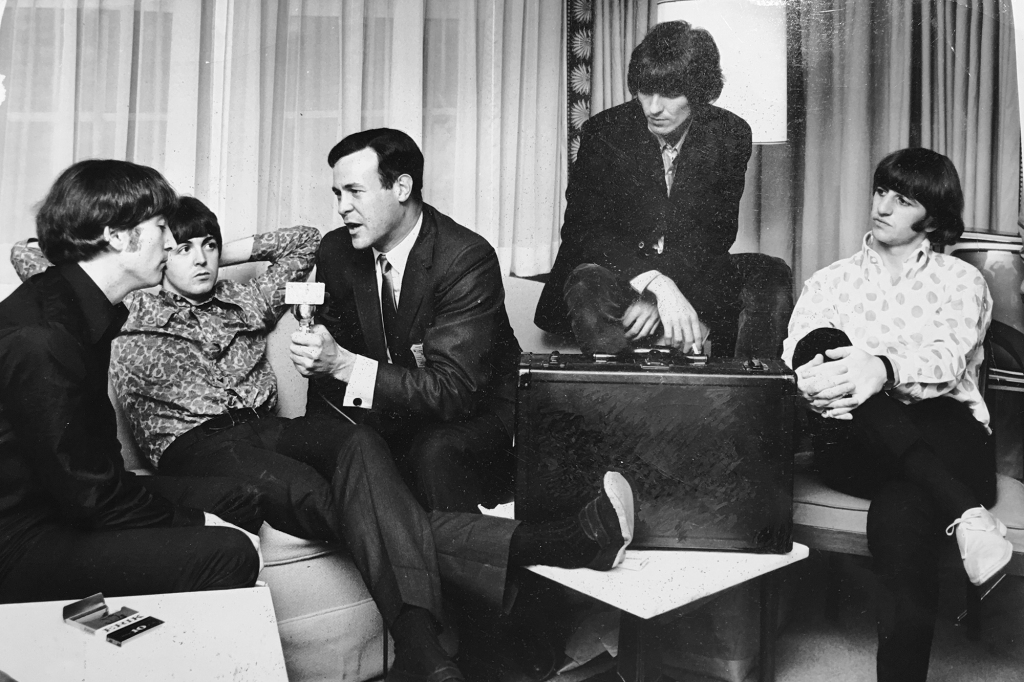
The Beatles first invaded the United States airwaves in 1963. It was tunes like “I Want to Hold Your Hand” that had American girls and boys going berserk over the British sensation when they first toured the US — with the band playing Queens’ Forest Hills Stadium in the summer of 1964.
Ahead of the invasion, Cousin Brucie became a mouthpiece for the band and even struck a special deal with their record company to play “I Want to Hold Your Hand” ahead of its 1963 release — reaching 40 states at the time on his local signal.
It was such an exclusive coup that a security guard for The Beatles’ label kept the record in a locked briefcase handcuffed to his wrist until air at 9 p.m. exactly.
“That’s where [American Beatlemania] really started,” Cousin Brucie told The Post. “I’m reaching half the world [at 9 p.m.] on WABC so I put her on the air. And all hell broke loose. I think I played it eight times.”
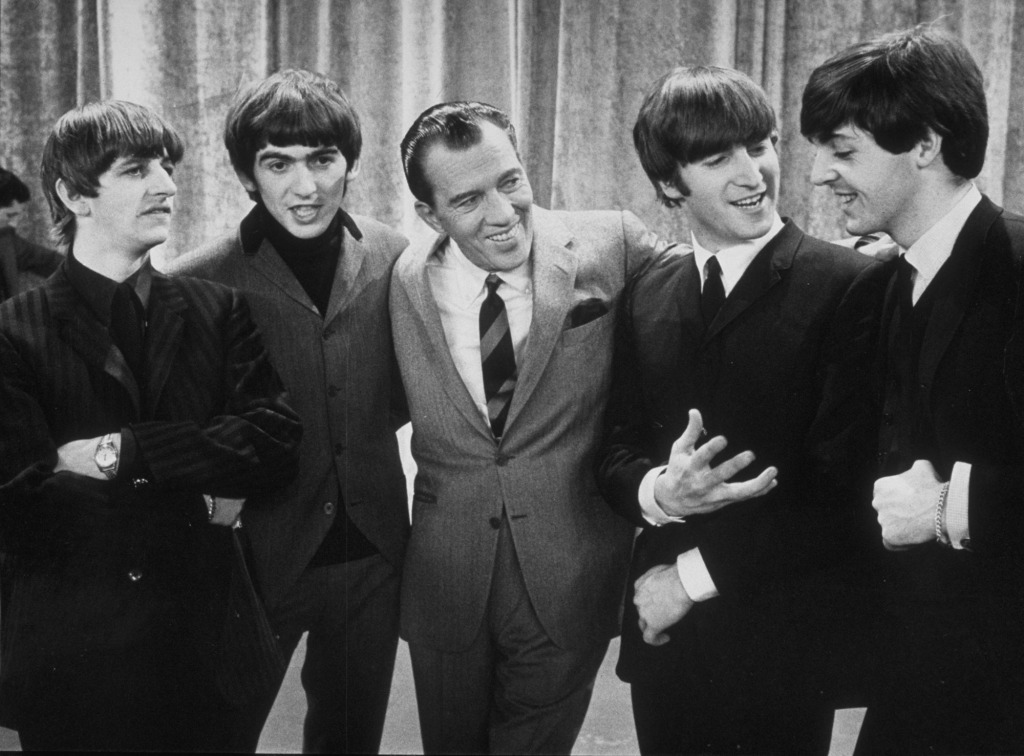
Brucie’s special relationship with The Beatles — which would earn the station’s nickname “W-A-Beatle-C” — grew in time as the band conquered US radio. He interviewed “the guys,” as he called them, inside their room at the Warwick Hotel on 54th and Sixth in that summer of ’64.
“They were very nervous,” he said. “They never really had a New York City welcome before. And when New York City welcomes somebody, there’s none like it, none second. It worked absolutely beautifully. WABC in those days was the center, we were like the control room for The Beatles.”
When radio stations would try recording WABC’s live broadcast to get playable copies of the music, Brucie came up with the idea of vocally watermarking the tracks to block the copy cats.
Helping Starr ‘find’ his lost medal
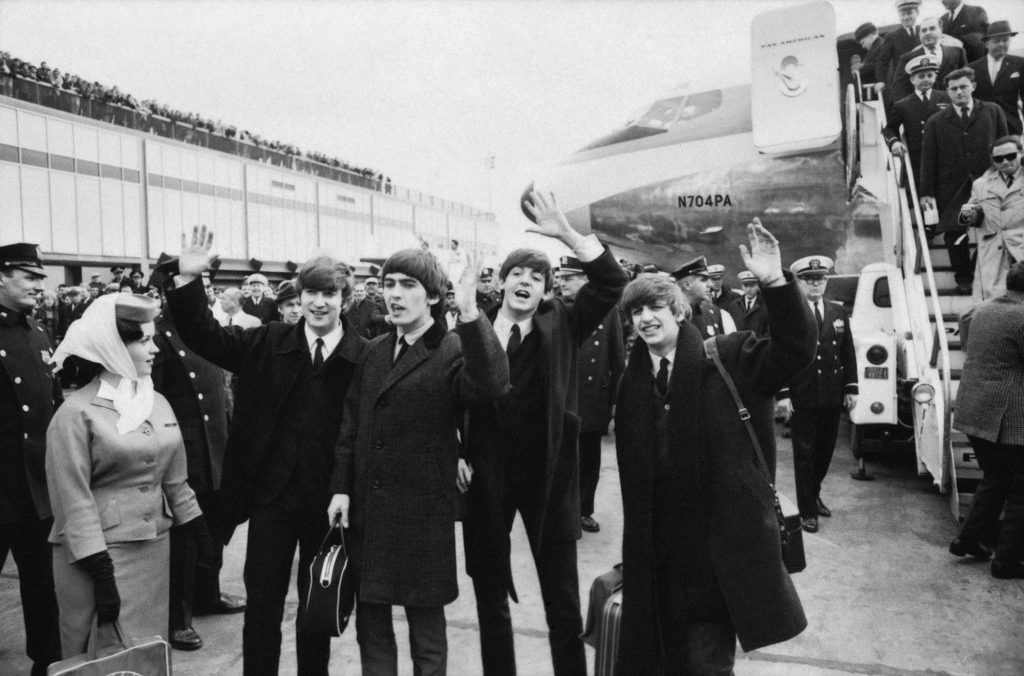
That wasn’t the last time Brucie and The Beatles would connect. While the band was out and about in the city that August, a rabid fan ripped off Starr’s St. Christopher medal. Both Starr and Cousin Brucie used the airwaves to get it back through another interview.
“‘I lost me St. Christopher’s metal that me auntie gave me,’” he recalled Starr telling him.
“And he was very upset. Somebody grabbed it off his neck as a souvenir. And I said, very foolishly, ‘Was it real gold?’… and he said, ‘Cousin Brucie, I only wear real gold’ and he got a little snippy and we got along great after that.”
“So I went on the air and I said ‘Look, whoever found — I didn’t say took — I said whoever found Starr’s St. Christopher’s medal, you’re not in trouble … I want you to have your mom and dad call me at this number.’ I knew that I had something very important here. Well, after I got off the air a few minutes later, I received a call.”
Cousin Brucie and the station arranged for the fan who “found” the medal to meet in person in front of a massive press corps at the hotel.
“I told her if you bring this back, the St. Christopher’s medal, Ringo will kiss you. I said to Ringo, ‘Ringo will you give her a hug and a kiss?’ and he said, ‘Absolutely.’”
The retrieval of Starr’s medal is something the two still reminisce over to this day, Brucie said.
The blackout of ’77
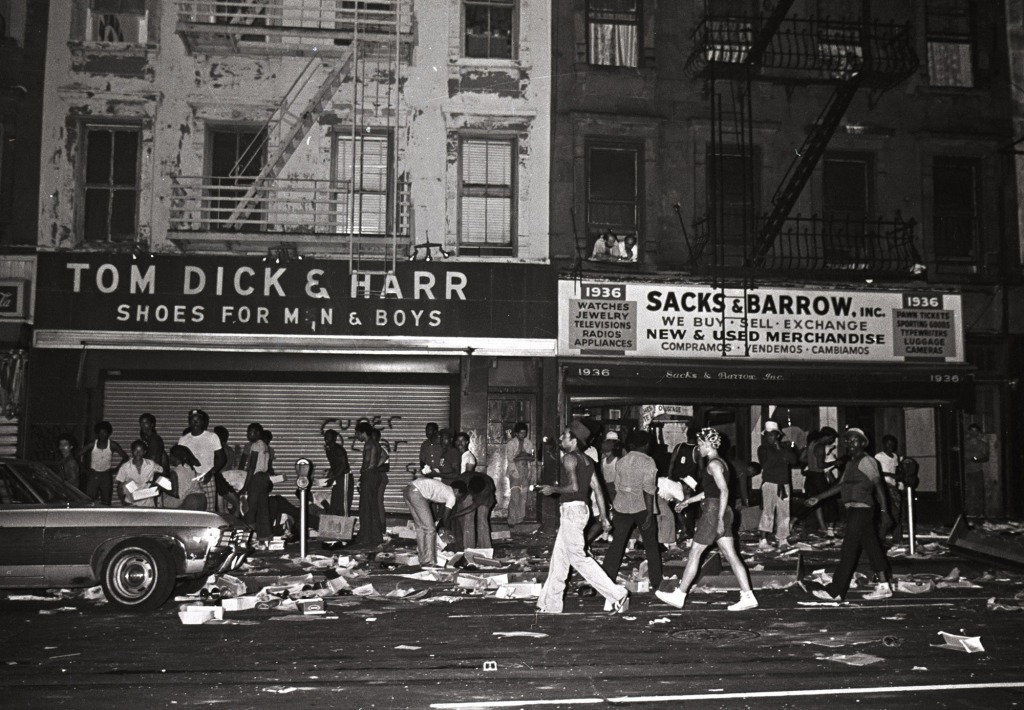
The Bronx was burning and serial killer David “Son of Sam” Berkowitz was running amok when the city was plunged into darkness in the summer of 1977.
With the city already in a historic crisis mode, 25 hours in the dark brought on by a substantial strike and a stay-at-home advisory from Mayor Abraham Beame simply had New Yorkers terrified on July 13, 1977.
Their panic was legitimate: Over a thousand fires were lit, 1,600 stores had been looted, and a 17-year-old was murdered in Carroll Gardens during the outage.
“Everybody was listening to us all overnight, they were in the streets waiting to hear what was going on,” Libertini said, noting that host George Michael and news director Paul Ehrlich had managed to get the mayor and reps from the Public Service Enterprise Group on air for updates — despite the two entities being at each other’s throats at the time.
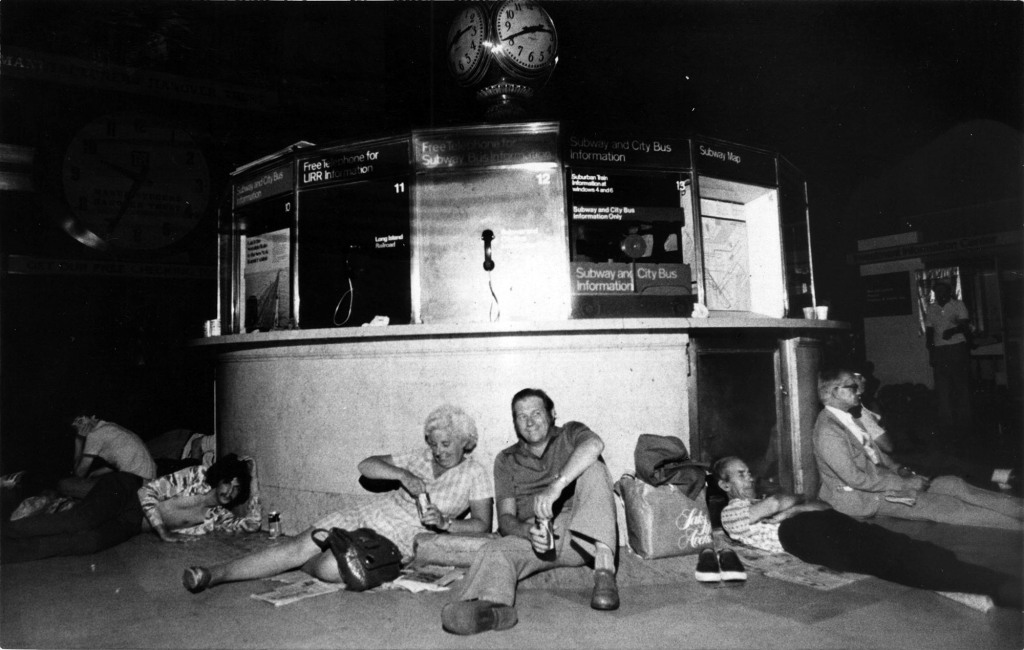
Along with getting the big pols on air, Michael and Ehrlich were giving hyperlocal updates — talking to New Yorkers and alerting listeners to reports of riots and chaos in the streets.
“Ultimately, the station kept the city calm in a time of extreme chaos. It was one of our proudest moments,” Libertini said.
WABC remained on air from a backup generator, which was installed after the 1968 blackout forced radio host Dan Ingram to drive to Lodi, NJ, to broadcast.
The day the music died
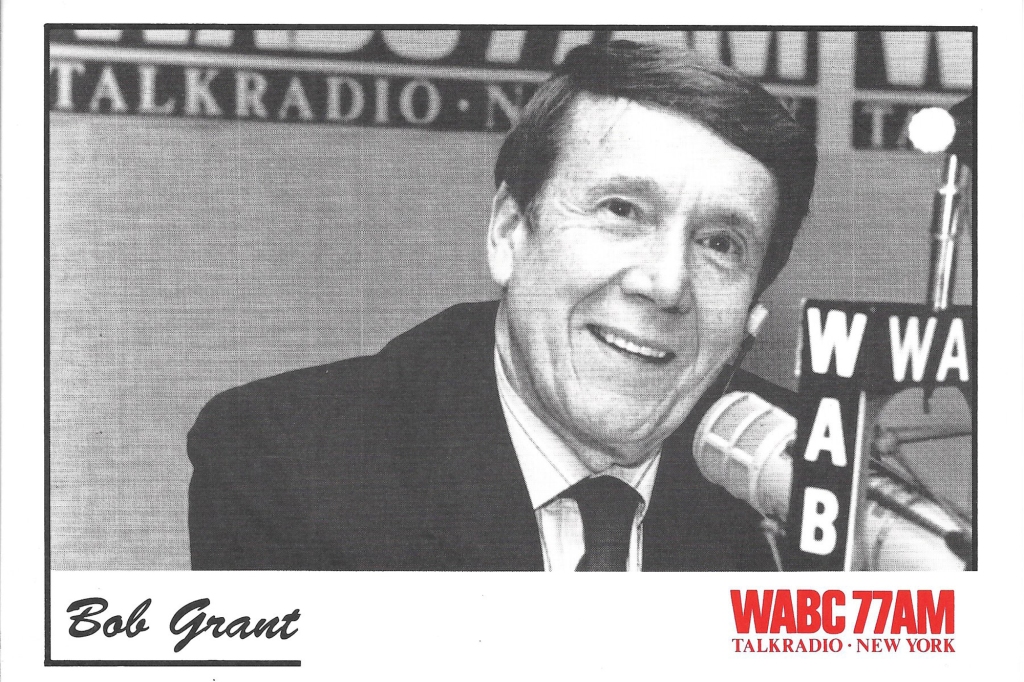
On the morning of May 10, 1982, WABC bid farewell to music programming and switched over to strictly talk radio that afternoon.
“The Day the Music Died,” as it’s since been called, signaled a changing of the guard as FM radio took over as the preferred way for listeners to enjoy tunes from its cleaner sounding audio.
Dan Ingram and Ron Lundy were the final music hosts on the station and put together a special 36-minute compilation of song clips from 1953 — when WABC took over the station — through the early ’80s.
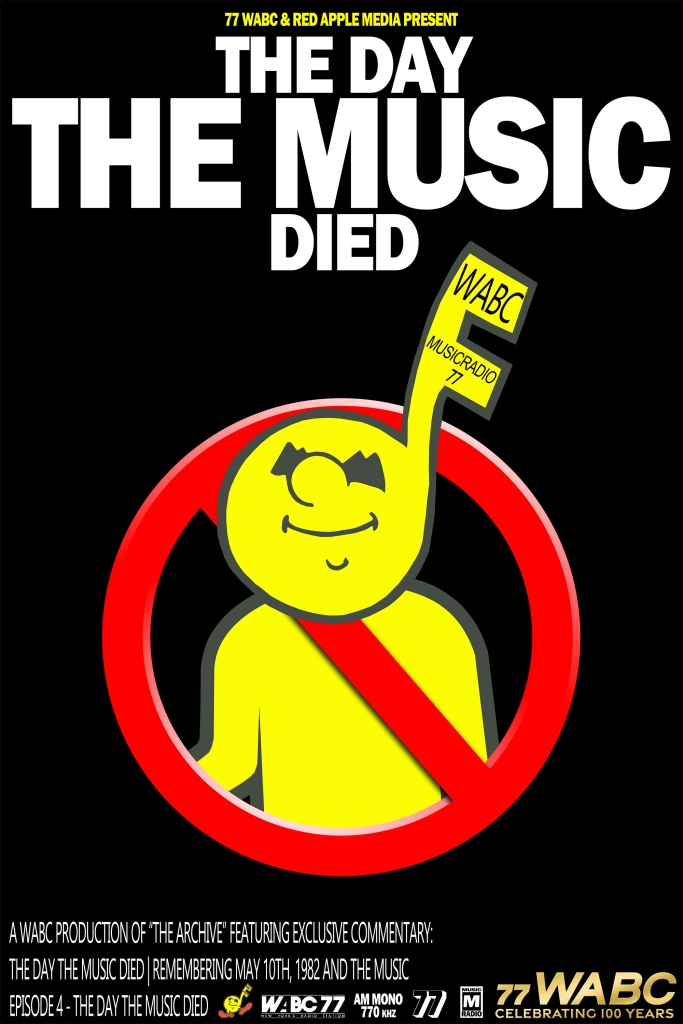
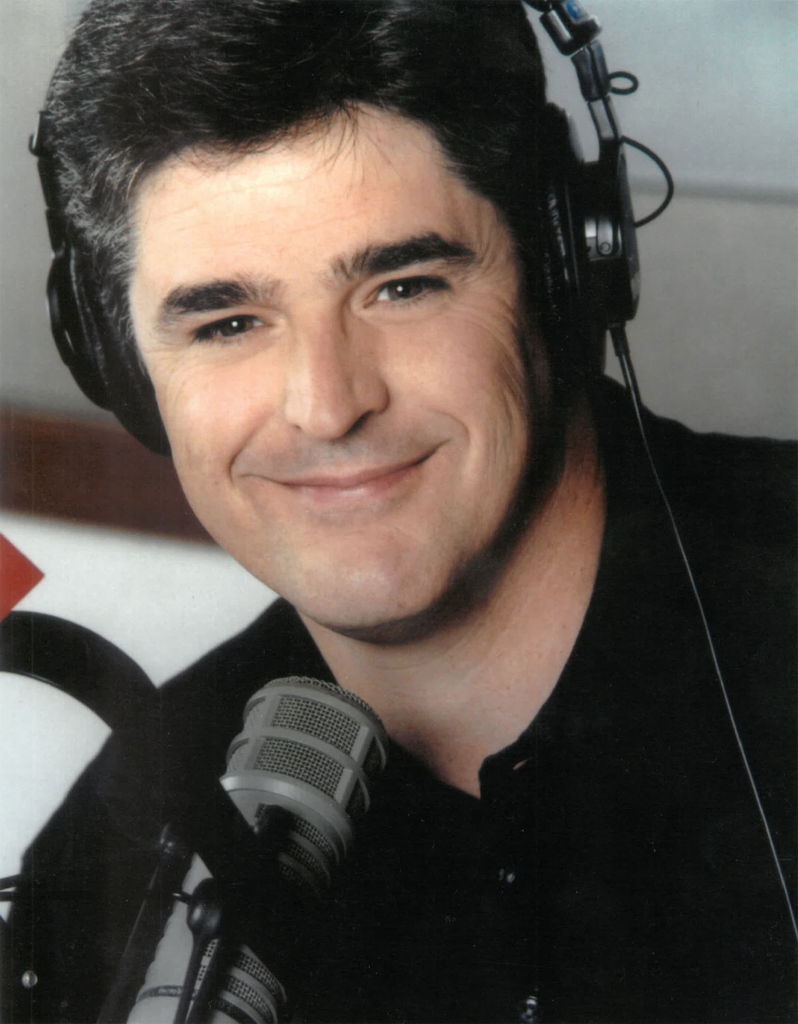
“They covered every [iconic] piece of music there had been during their time on the air,” Libertini, who put together a documentary on the fateful day, said. They played tunes like Bill Haley’s “Rock Around the Clock,” Queen’s “We Will Rock You” and even “Start Me Up” by the Rolling Stones.
The first ever talk host was Art Athens, who invited Ingram and Lundy on as his first guests in tribute to their mark left on radio, according to Libertini.
Two years later, famed conservative host Bob Grant — who made waves tearing then-Governor Mario Cuomo to shreds (both in English and Italian) and even wore T-shirts mocking the politician — would cement the station’s new identity in right-wing political commentary.
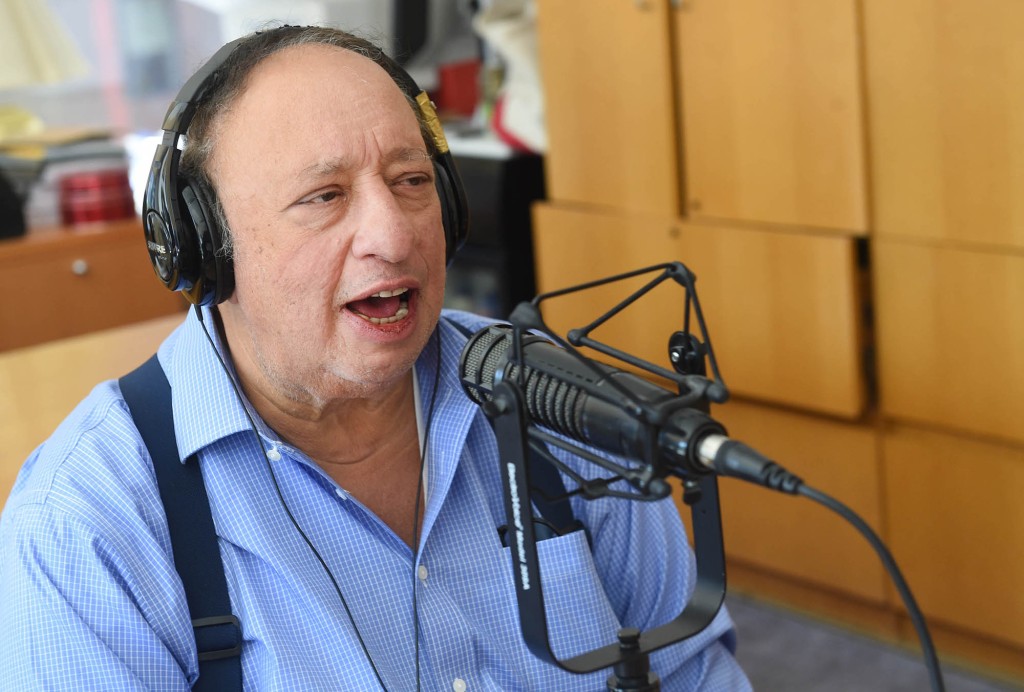
Following the path Grant laid, WABC would go on to produce more broadcast icons like Rush Limbaugh in 1988, Sean Hannity in 1996, and Mark Levin, who first did a Sunday show for free with the station in 2002.
Curtis Sliwa gets shot after going at the mob
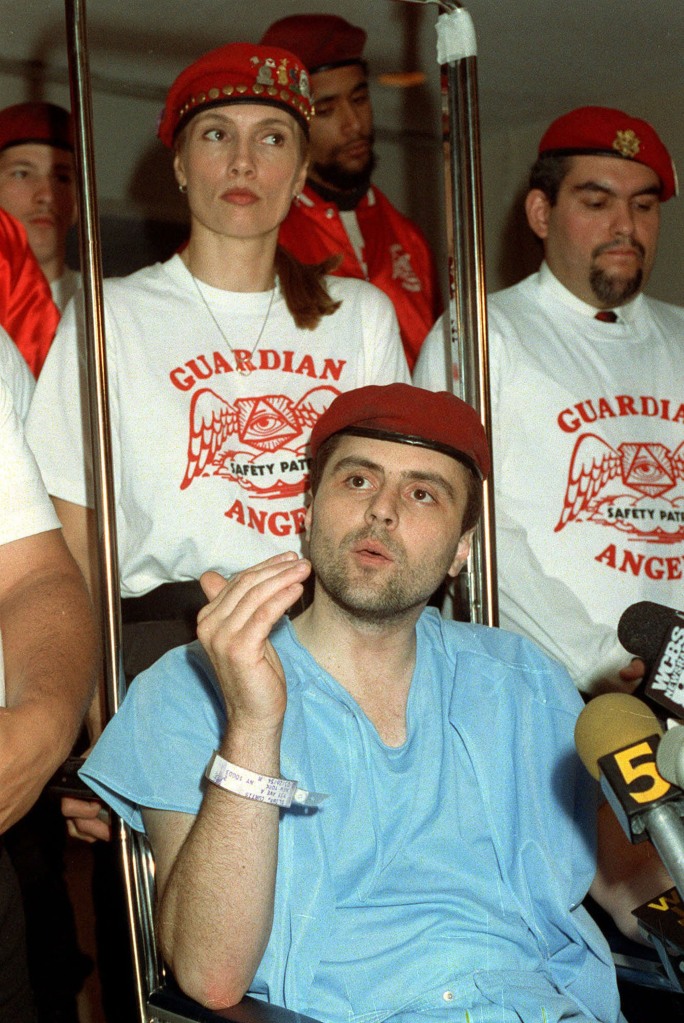
In 1992, still-active talk show host and former GOP mayoral candidate Curtis Sliwa was shot five times with hollow point rounds in the back of a cab — an attempted hit thought to be ordered by John Gotti Jr. in retribution for Sliwa talking about his father, John Gotti Sr., who was on trial for murder and related organized-crime charges at the time.
While doing the “Angels in the Morning” show with his wife Lisa Evers, Sliwa told The Post he “would critique” the trial despite being warned against it.
“The rest of the [competition] said, ‘We’re not talking about the guy, that’ll get ya killed early.’ They would all warn me,” he said.
He was attacked by baseball-bat-wielding mobsters who broke his elbow on the Lower East Side in April 1992 “as a warning,” he said.
But he got right back on air the next day, talking about a murder allegedly committed by then-boss John Gotti Jr.
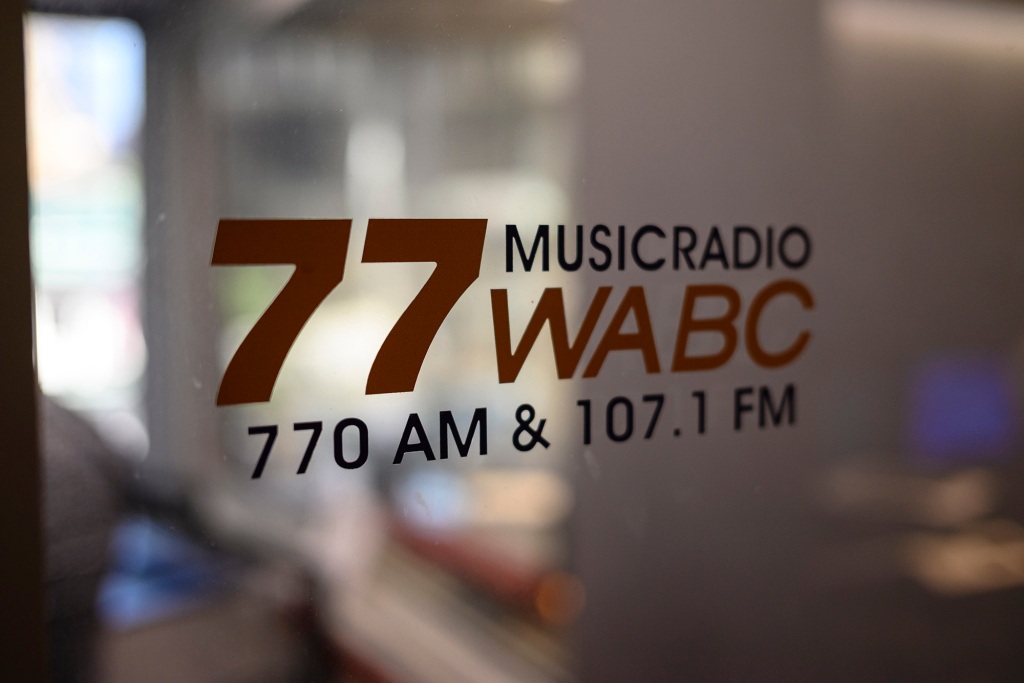
“Then on June 19th in 1992, as I was on my way to WABC to do the show, boom! They shot me… I dive out of the back of the cab, survive it and I’d say that was the most intense moment. It appeared I was dead.”
Still, even the presumed work of La Cosa Nostra couldn’t keep the Guardian Angels founder off the air.
“I actually was broadcasting from Bellevue two weeks later with my wife, Lisa.”
In 2005, Gotti Jr. went to trial on charges that included conspiracy and kidnapping of Sliwa, though a mistrial was declared after jury deadlock. Gotti’s Gambino associate, Michael Yannotti, was also cleared on charges related to the shooting, though he was given a 20-year sentence for a racketeering conviction.
9/11
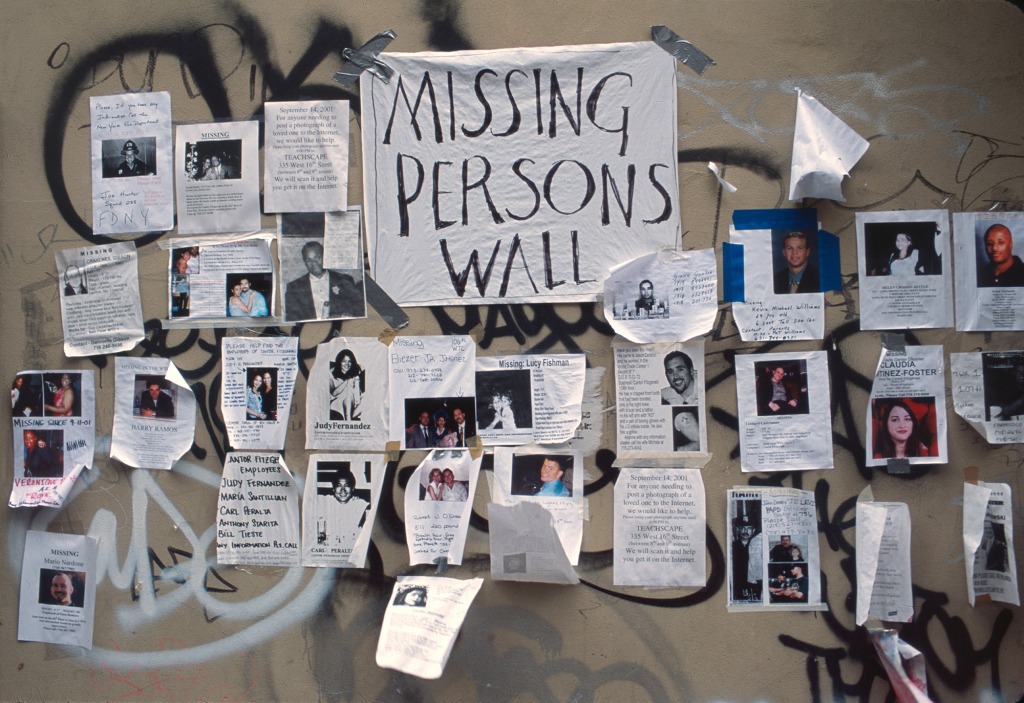
The voices of WABC made it a mission to “try to make sense” of New York’s darkest day as the tragic attacks of September 11 unfurled, Libertini said.
In the panic, confusion, and anger that came with the collapse of the Twin Towers, WABC — like every news outlet — had been fielding information on the terror attack and gave near minute-by-minute updates on the status of New York and Washington DC.
Yet their coverage shifted to something much more personal. The station ultimately doubled as a lifeline where distraught family would go on air and call out for missing loved ones.
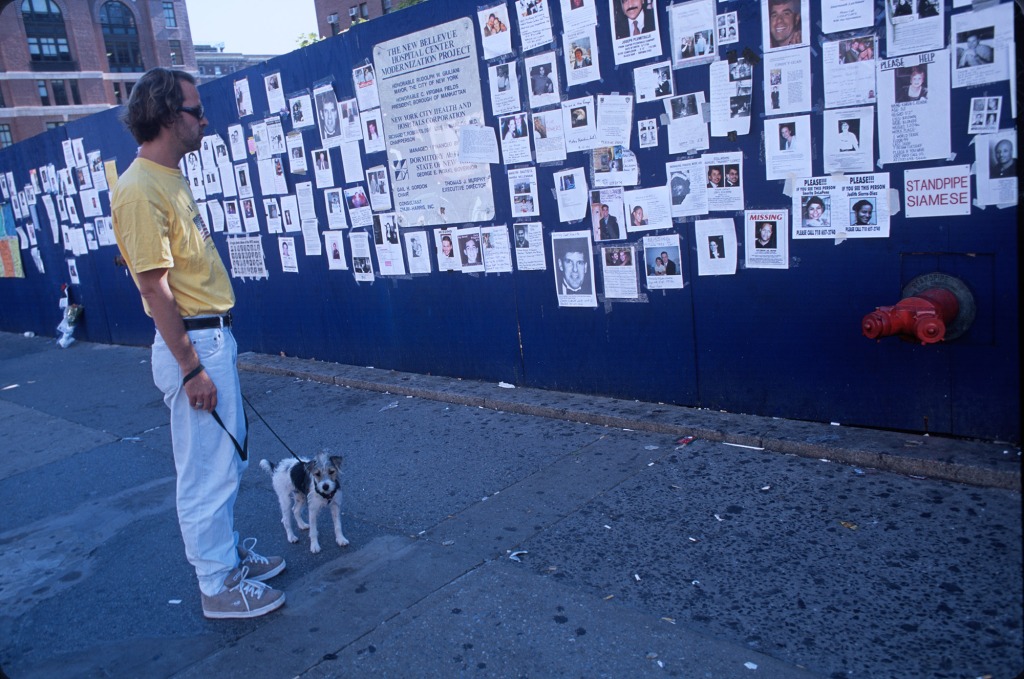
“We did a show for New York City, everybody would call in. ‘I haven’t seen my husband, I haven’t heard from him since 9 a.m.,’” Libertini said. “Listeners shared the real, real crazy things that they were going through. We would commiserate with them and be there for them.”
WABC’s approach of being a shoulder for New Yorkers to cry on throughout the despair was commended by former Mayor Rudy Giuliani — who now hosts a show on the station himself.
“WABC to me, when I was the mayor, was an arm of New York,” Giuliani told The Post. “They were there to catch criminals… they were there to calm people during September 11.”
Read the full article Here


